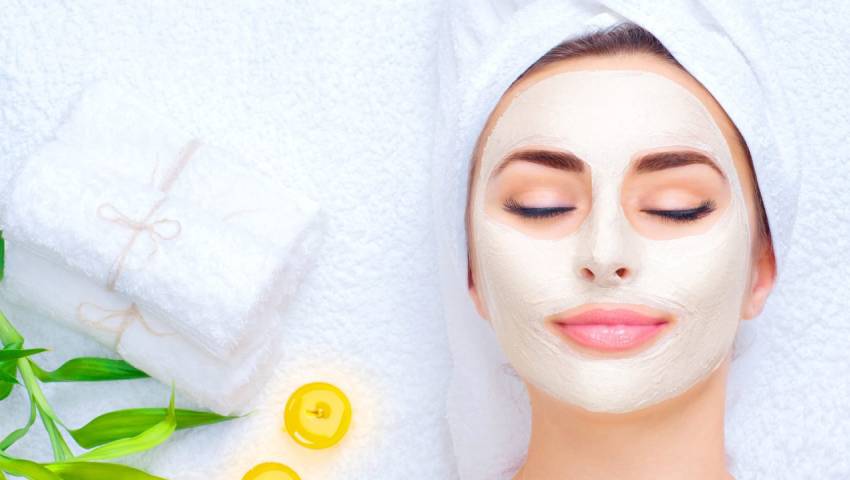
- 30/08/2024
- Sneha Bahekar
- 0 Comments
- Blogs
Face Masks for Every Skin Type Sneha Bahekar’s Tips
Whether you’re looking to hydrate, exfoliate, or detoxify, there’s a face mask for every skin type. However, with so many choices available, selecting the right one can be overwhelming. Face covers are an outstanding method for giving your skin some additional care.
Sneha Bahekar is the best makeup artist in Tathwade and she will help you select the best face mask for your skin type, ensuring your skin looks and feels its best.
Know Your Skin Type:
Before dipping into specific face masks, it’s important to understand your skin type. The four main skin types are:
- Normal Skin: Balanced, not too oily or dry, with rare flaws.
- Oily Skin: Shiny, with dilated pores and prone to blackheads and acne.
- Dry Skin: Flaky, harsh surface, and may feel tight or touchy.
- Mixture Skin: Oily in the T-zone (forehead, nose, chin) and dry or normal on the cheeks.
Specifying your skin type will advise you on the most useful face mask.
Best Face Masks for Normal Skin:
Normal skin is balanced and can handle a variety of masks. The goal is to keep that balance while providing nourishment and radiance.
- Hydrating Masks: Look for masks with ingredients like hyaluronic acid, aloe vera, and honey, which keep the skin plump and moisturized.
- Brightening Masks: Masks with vitamin C, niacinamide, or fruit enzymes can improve your natural glow.
Sneha’s Tip: “A mild exfoliating mask once a week can help keep a smooth surface.”
Best Face Masks for Oily Skin:
Sleek skin is inclined to skin breakouts and breakouts because of an overabundance of sebum creation. The perfect mask should control oil and stop clogging of pores.
- Clay Masks: Bentonite or kaolin clay masks are perfect for soaking excess oil and drawing out impurities.
- Charcoal Masks: Charcoal masks help detoxify the skin by pulling out dirt and oil from the pores.
Sneha’s Tip: “Avoid over-drying your skin; follow up with a light, oil-free moisturizer.”
Best Face Masks for Dry Skin:
Dry skin needs extra hydration and moisture retention. The right face mask can soothe and nourish parched skin.
- Cream Masks: Look for masks with shea butter, glycerin, or ceramides that deeply moisturize and repair the skin barrier.
- Overnight Masks: These are great for delivering intense hydration while you sleep, often including elements like hyaluronic acid and squalane.
Sneha’s Tip: “For extra gain, apply a hydrating serum under your mask.”
Best Face Masks for Combination Skin:
Combination skin needs a mask that can address both oily and dry areas simultaneously. A multi-masking method often works best.
- Multi-Masking: Apply a clay mask on the T-zone to control oil and a hydrating mask on the cheeks to moisturize.
- Gel Masks: These are light enough for the oily areas but still provide hydration for dry patches.
Sneha’s Tip: “Experiment with different masks to find the perfect balance for your skin.”
Sensitive Skin Considerations:
Sensitive skin can be tricky to care for, as it easily reacts to harsh elements. Opt for masks with gentle, soothing parts.
- Calming Masks: Masks with elements like oatmeal, chamomile, or aloe vera help reduce redness and irritation.
- Fragrance-Free Masks: Always choose masks free from synthetic fragrances and harsh chemicals to avoid possible reactions.
Sneha’s Tip: “Always do a patch test before applying a new mask to your face.”
Choosing the Right Mask Format:
Face masks come in different formats, including sheet masks, cream masks, gel masks, and peel-off masks. The pick of format can rely on your liking and skin type:
- Sheet Masks: Excellent for hydration and soft, right for all skin types.
- Cream Masks: Ideal for dry and normal skin types must deep nourishment.
- Gel Masks: Perfect for combination and sensitive skin, offering a cooling effect.
- Peel-Off Masks: Best for oily skin, helping to remove dead skin cells and impurities.
Sneha’s Tip: “Choose a format that you find comfortable and useful for your skin concerns.”
DIY Masks vs. Store-Bought Masks:
DIY masks can be a great option for those who prefer natural ingredients, while store-bought masks offer convenience and a wider variety of active ingredients.
- DIY Masks: Ingredients like honey, yogurt, and avocado can be mixed to create nourishing masks at home.
- Store-Bought Masks: These often contain scientifically-backed ingredients that target specific skin concerns more effectively.
Sneha’s Tip: “Combine the best of both worlds by incorporating DIY masks into your routine along with your favorite store-bought choices.”
How Often Should You Use a Face Mask?
The frequency of using a face mask depends on your skin type and the mask’s purpose. Generally:
- Normal Skin: 1-2 times a week
- Oily Skin: 2-3 times a week
- Dry Skin: 1-2 times a week (focus on hydrating masks)
- Combination Skin: 1-2 times a week, depending on the areas treated
Sneha’s Tip: “Listen to your skin; if it feels irritated, reduce the frequency.”
Conclusion:
Choosing the right face mask for your skin type can make a notable contrast in your skincare routine. By understanding your skin’s needs and selecting masks that address those needs, you can achieve healthier, glowing skin. As a makeup artist, Sneha Bahekar says that skincare is the foundation of beautiful makeup, and the right face mask is an important part of that foundation. Also offers Permanent makeup, professional makeup, microblading services, and nail art in Tathwade.
Remember, consistency is key, and always follow up with your regular skincare routine after using a mask for the best effects. Happy masking!
Contact Sneha Bahekar as soon as possible for better services!
